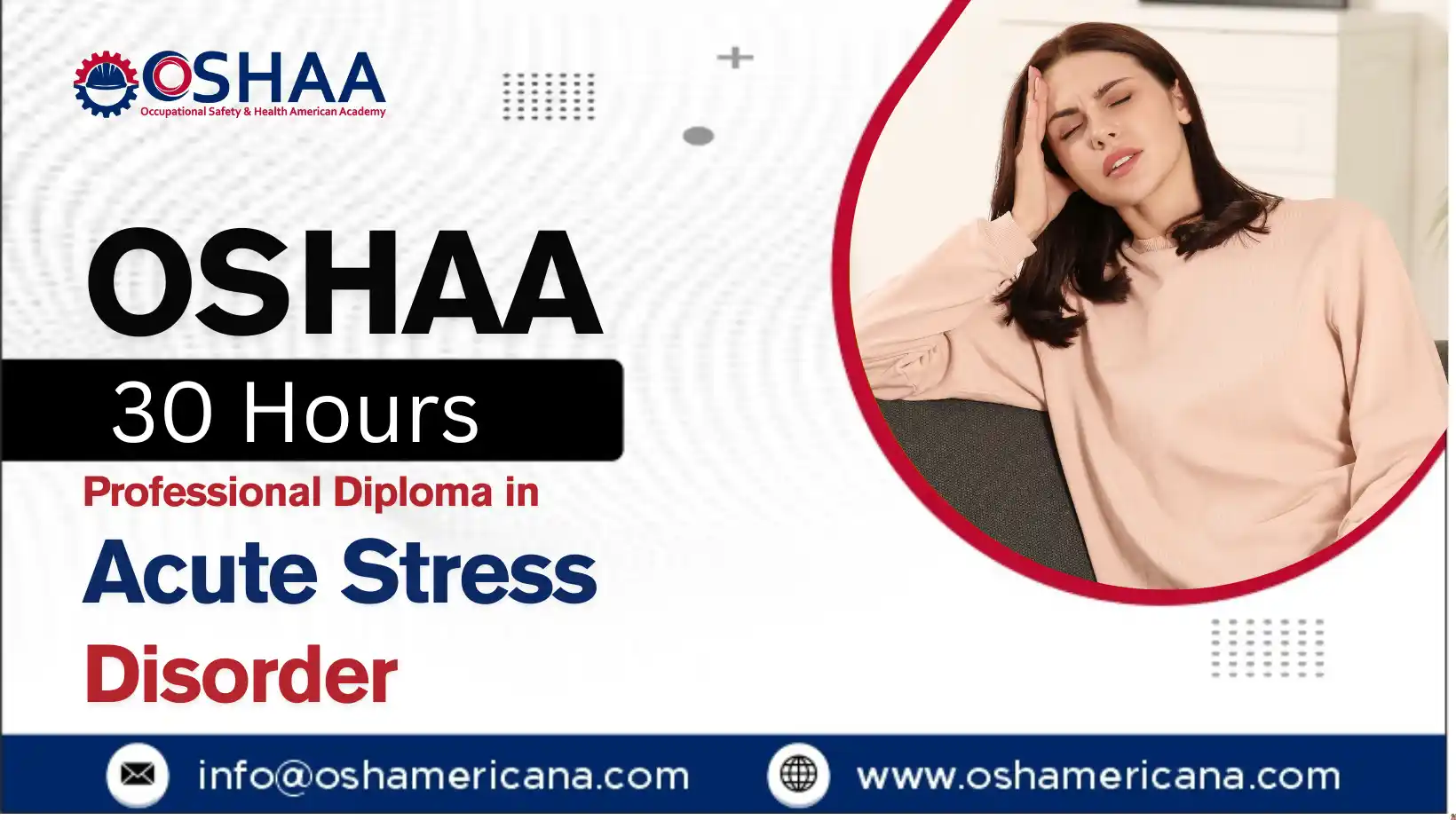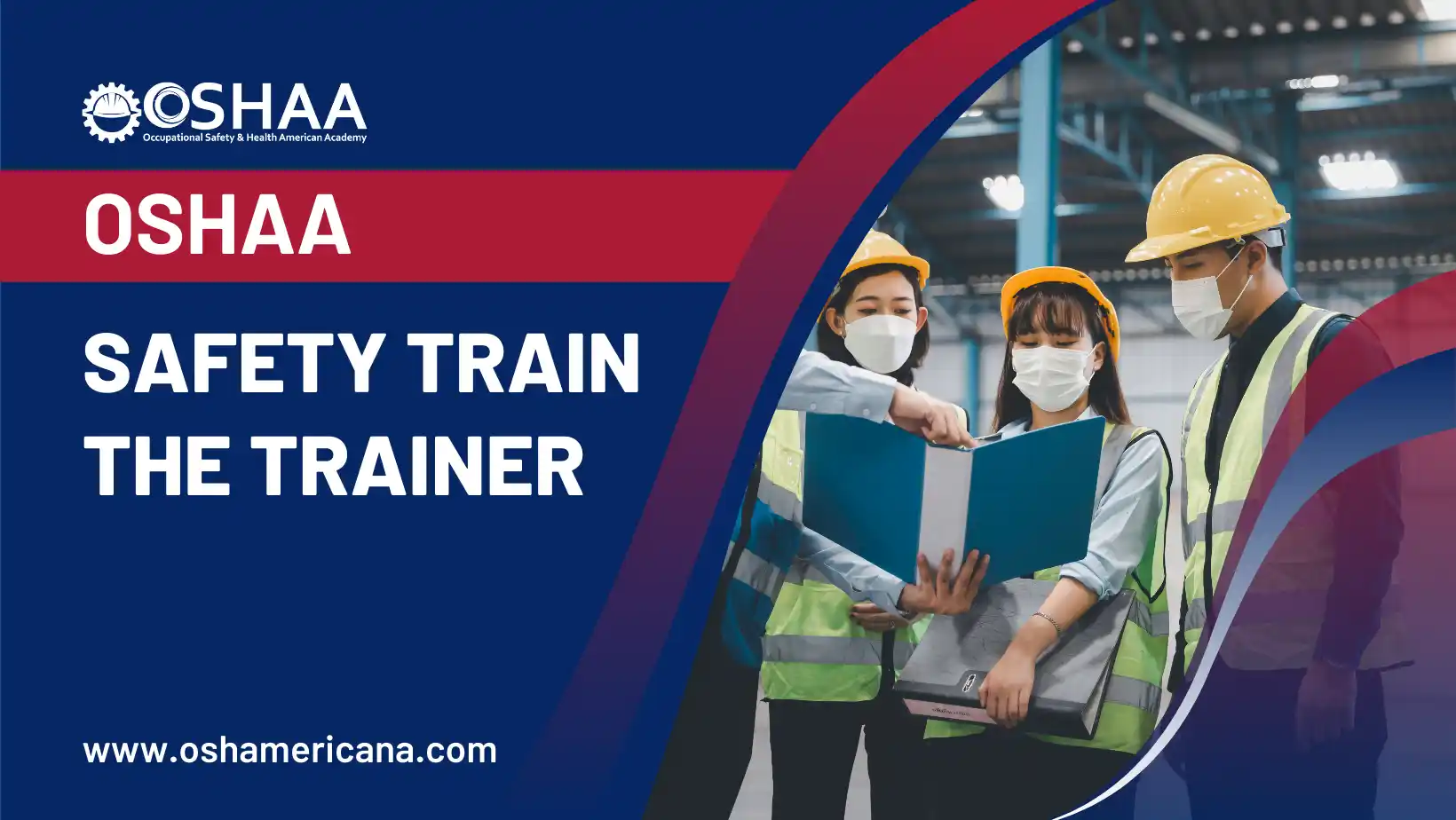Professional Diploma in Acute Stress Disorder
Understanding and responding to acute stress reactions is essential for professionals working in healthcare, mental health, emergency services, and trauma-informed care. The OSHAA 30-Hours Professional Diploma in Acute Stress Disorder is designed to provide participants with a focused, evidence-based exploration of the causes, symptoms, diagnosis, and management of acute stress disorder (ASD). This course equips participants with the knowledge and practical tools needed to recognise, assess, and support individuals experiencing acute stress following traumatic events.
This diploma is aligned with UK professional standards and offers a structured approach to understanding the neuropsychological impact of trauma, the diagnostic criteria for ASD, and early intervention techniques. Through a combination of theory and applied learning, participants will gain a comprehensive understanding of how to effectively address acute stress responses in a range of clinical and non-clinical settings.
The OSHAA 30-Hours Professional Diploma in Acute Stress Disorder provides the critical knowledge needed to respond effectively to trauma-related stress. With a focus on practical, ethical, and evidence-informed care, this course is ideal for professionals who wish to deepen their understanding of acute stress reactions and enhance their ability to support individuals during the most vulnerable moments of recovery. It offers the opportunity to gain a professional qualification that is not only relevant, but increasingly essential in today’s trauma-aware world.
OSHAA 30-Hours Professional Diploma in Acute Stress Disorder
Study Units
Learning Outcomes
Introduction to Acute Stress Disorder and Trauma Response (3 hours)
- Define acute stress disorder (ASD) and differentiate it from other trauma-related conditions
- Understand immediate psychological and behavioural reactions to traumatic events
- Recognise the importance of timely intervention to prevent long-term consequences
- Explore early coping responses and their impact on recovery
- Identify the role of support networks in mitigating stress effects
Neurobiology and Psychological Impact of Acute Stress (4 hours)
- Explore how trauma affects brain structures like the amygdala, hippocampus, and prefrontal cortex
- Understand neurochemical changes during acute stress
- Identify psychological responses such as hyperarousal, emotional numbing, and dysregulation
- Examine short-term and long-term impacts of trauma on cognition and behaviour
- Recognise the link between neurobiology and therapeutic approaches
Diagnostic Criteria and Differential Diagnosis (5 hours)
- Learn DSM-5 diagnostic criteria for acute stress disorder
- Differentiate ASD from PTSD, adjustment disorders, and generalised anxiety
- Understand symptom onset, duration, and progression
- Explore key features for accurate clinical identification
- Recognise comorbidities and overlapping conditions
Risk Factors, Protective Factors, and Resilience (5 hours)
- Identify individual risk factors such as age, prior trauma, and mental health history
- Explore situational and environmental factors influencing ASD development
- Recognise protective factors including social support, coping skills, and mindfulness
- Understand psychological resilience and its role in recovery
- Examine strategies to strengthen resilience in affected individuals
Assessment Tools and Early Identification Strategies (4 hours)
- Learn to use validated screening tools for ASD
- Apply structured observation and trauma history-taking techniques
- Understand best practices for early identification and intervention
- Recognise ethical considerations and consent in assessments
- Use assessment outcomes to inform referrals and support planning
Trauma-Informed Communication and Engagement (3 hours)
- Develop sensitive communication strategies with trauma-affected individuals
- Practise principles of safety, trust, empowerment, and collaboration
- Recognise the impact of language, tone, and body language on trauma survivors
- Adapt communication approaches for diverse cultural and age groups
- Build rapport to enhance therapeutic engagement
Acute Stress Interventions and Supportive Therapies (4 hours)
- Gain an overview of evidence-based interventions like psychological first aid
- Explore supportive therapies suitable for acute settings
- Understand stabilisation techniques and short-term safety planning
- Recognise the importance of multi-disciplinary care approaches
- Apply practical strategies to reduce immediate stress responses
Managing Dissociation, Flashbacks, and Anxiety Responses (2 hours)
- Recognise symptoms and triggers of dissociation and intrusive memories
- Learn grounding techniques and self-regulation strategies
- Understand anxiety surges and effective coping methods
- Develop safety plans to support acute stress episodes
- Explore intervention methods to reduce the intensity and frequency of flashbacks
Course Benefits – OSHAA 30-Hours Professional Diploma in Acute Stress Disorder
- Develop a clear understanding of acute stress disorder and its distinction from other trauma-related conditions
- Gain in-depth knowledge of the neurobiological and psychological effects of acute trauma
- Learn to use recognised assessment tools for early identification and intervention
- Enhance professional confidence in working with trauma-affected individuals in high-pressure environments
- Acquire practical skills in trauma-informed communication and supportive engagement
- Understand risk and protective factors that influence individual trauma responses
- Learn to manage complex symptoms such as dissociation, flashbacks, and severe anxiety
- Apply ethical and safeguarding principles when responding to individuals in acute psychological distress
- Strengthen your professional profile with a UK-standard diploma relevant to healthcare, mental health, education, and emergency services
- Be equipped to support recovery, promote resilience, and contribute to trauma-sensitive practice in any workplace setting
Who Is This Course For?
- Participants working in healthcare, counselling, or mental health support roles
- Emergency responders, crisis workers, and frontline professionals dealing with traumatic incidents
- Professionals in education, social care, or community services who support vulnerable individuals
- Human resource personnel and wellbeing officers aiming to build trauma-informed workplace practices
- Individuals seeking to enhance their knowledge of acute psychological responses in high-stress settings
- Participants pursuing continuing professional development in trauma care or psychological first aid
- Anyone responsible for safeguarding, crisis management, or early psychological intervention across sectors







